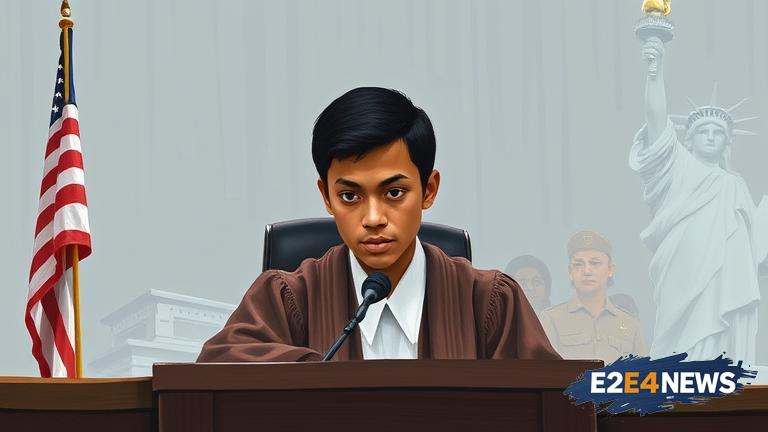A highly anticipated court case in Boston is set to determine whether the deportation of international students who engage in free speech activities violates their constitutional rights. The case, which has garnered significant attention from academic and civil liberties groups, centers on the question of whether the US government’s actions constitute a form of censorship. At the heart of the matter is the issue of whether students who speak out on sensitive topics, such as human rights or government policies, can be deported without due process. The plaintiffs argue that such actions would have a chilling effect on free speech, deterring students from expressing their opinions or participating in public discourse. The case has sparked a heated debate on the intersection of immigration and academic freedom, with many arguing that the US government’s policies are overly broad and restrictive. The judge’s ruling is expected to have far-reaching implications for international students and scholars, who come to the US to pursue higher education and contribute to the academic community. The case also raises questions about the role of universities in protecting the free speech rights of their students, particularly those who may be vulnerable to deportation. Many universities have spoken out in support of the plaintiffs, arguing that academic freedom is essential to the pursuit of knowledge and that students should be able to express their opinions without fear of reprisal. The US government, on the other hand, has argued that its policies are necessary to maintain national security and enforce immigration laws. The case has also sparked a broader conversation about the impact of immigration policies on higher education, with many arguing that the current system is in need of reform. As the judge prepares to rule, many are watching with bated breath, aware that the decision will have significant implications for the future of academic freedom and free speech in the US. The case is also being closely monitored by international students and scholars, who are eager to know whether they will be able to continue to express their opinions without fear of deportation. The ruling is expected to be a landmark decision, one that will shape the contours of free speech and academic freedom in the US for years to come. The judge’s decision will also have significant implications for the US government’s immigration policies, particularly with regards to the treatment of international students. As the case comes to a close, many are reflecting on the importance of free speech and academic freedom, and the need to protect these fundamental rights. The case is a reminder that the US has long been a beacon of academic freedom and intellectual inquiry, and that it is essential to preserve these values in the face of increasingly complex and challenging global circumstances.
